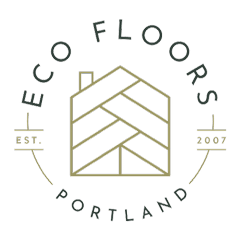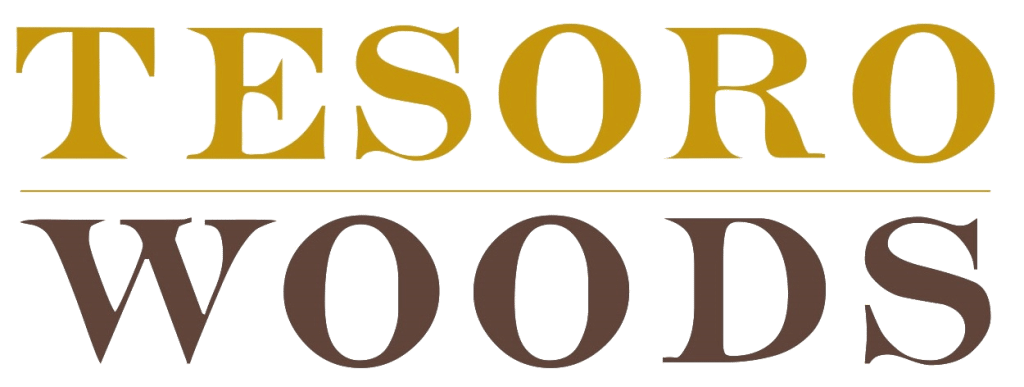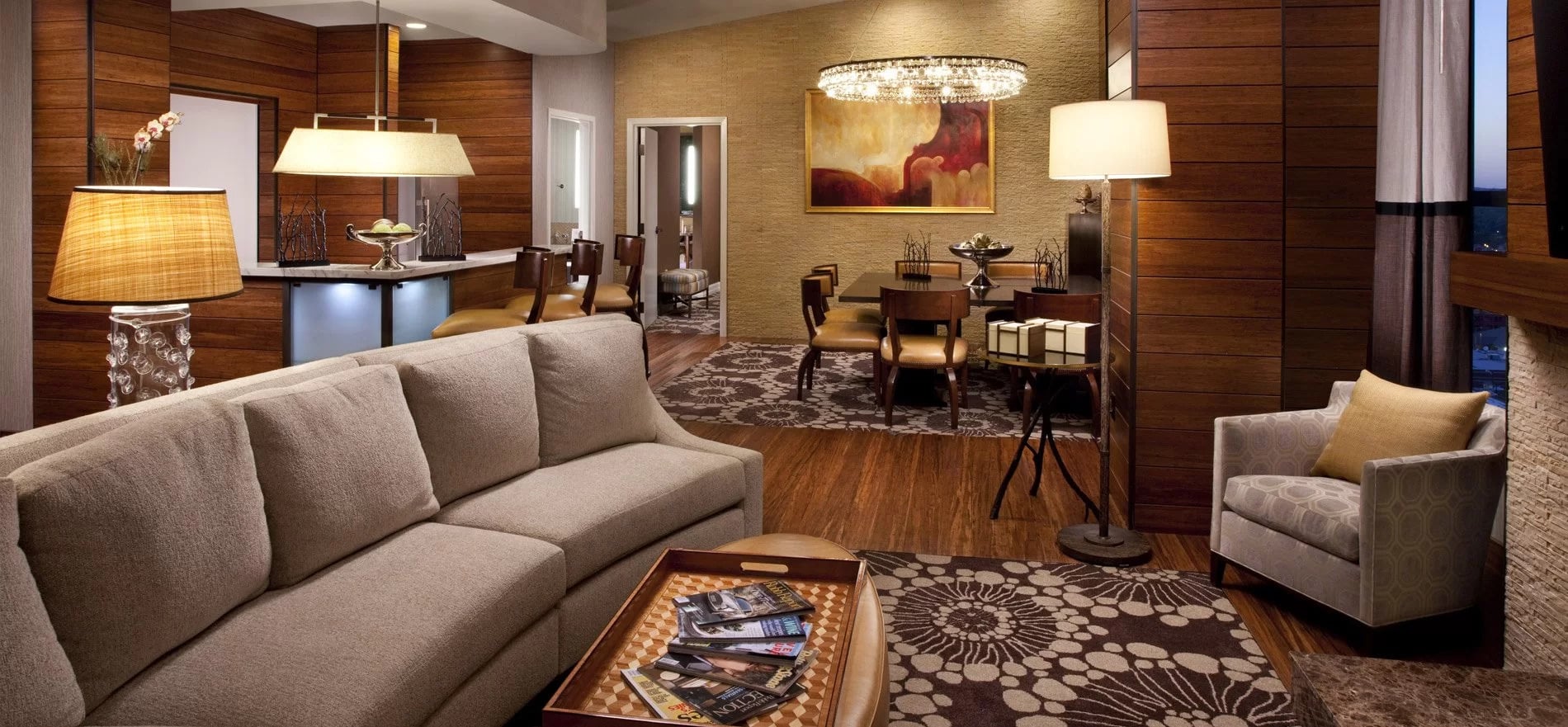
Eco-Conscious, Sustainable & More
Bamboo Flooring
If you consider yourself an eco-conscious consumer, look no further than bamboo for your next sustainable floor. Most Bamboo flooring is constructed of Moso bamboo; a unique type of bamboo native to the deciduous woodlands of China. Moso Bamboo is truly incredible. This giant stock is not a tree, but a grass with a hard wooden stem known as a culm. Moso Bamboo has greater compressive strength than concrete, making it an extremely durable flooring option excellent for high-traffic areas. It is a rapidly renewing resource, as it can be re-harvested every 5.5-6 years without harming the mother plant. It Grows around 1 meter daily and can reach its full mature height of 80 feet within just 2 months! This impressive plant is sustainably manufactured into exquisite bamboo flooring that rivals the appearance of hardwood and is unmatched in durability.
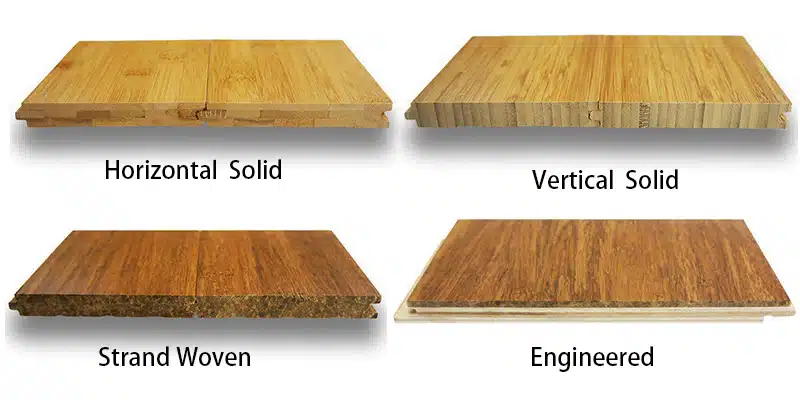
Bamboo Flooring
Different Types
The look you wish to achieve will be determined by the type of bamboo flooring you select. It’s important to understand that not all types bring the dent resistance and stability one may expect. Continue reading below in “application” to determine what is best for your flooring project.
Why Should You Buy Bamboo Flooring?
Bamboo Flooring Facts
Eco Floors has put together a Six-point guide to help you decide if Bamboo Flooring is right for you
Application – Bamboo flooring is best for the individual who likes hardwood flooring but wants something even more eco-friendly and durable. It can go in all the places you’d traditionally put hardwood floors but it has a better chance of maintaining its appearance in the areas where hardwood might wear down quicker. For example, an individual with a growing family and young kids might consider strand-woven bamboo because of its exceptional hardness and dent resistance. It would also be good for a higher traffic office, or a retail shop. These are some instances where bamboo flooring will outperform most hardwoods. If you’re not quite sold on the look of vinyl plank flooring or laminate but love their durability, give bamboo a try.
It’s important to recognize that not all bamboo is created equal. Let’s revisit the different types of bamboo:
Strand woven – High-quality, Solid strand-woven bamboo is considered more dimensionally stable than many species of hardwood floors. What this means is that you can expect less expansion and contraction from the bamboo flooring when placed in the same conditions as other types of hardwood flooring. To put that in context, strand woven bamboo could be a good option for a rental or second home in which you turn off the HVAC system when it’s not in use (this will likely void your warranty, but turning off HVAC is a popular practice with vacation homes). Strand woven bamboo may also be less prone to seasonal floor gapping, that is the hairline cracks that usually appear in the winter. Strand woven bamboo also boasts the highest hardness of any type of bamboo flooring and is around twice as hard as oak on the Janka hardness rating system. This is your best bet for durability.
Horizontal – Horizontal bamboo is less stable than strand woven, but more stable than vertical. As we see in the image above, it produces a unique look based on the way the strips are pressed together. Horizontal and vertical bamboo is less hard than strand-woven bamboo. Be sure to check the ratings on specific products because many claim to be harder than oak but have similar durability once lived with.
Vertical – This is for people desiring a tighter grain look. Again, this boasts similar durability to horizontal bamboo flooring but is less dimensionally stable.
Engineered – The least stable product of the types of bamboo flooring. In many cases, we’d recommend selecting an engineered hardwood over these. However, that is not to deter you from an engineered plank bamboo. Just remember, quality is paramount! Do not buy cheap engineered bamboo because you have a much higher risk of encountering noisy, cracking, and/or delaminating boards. Look for a floating floor with a click-lock system. This will let the floor expand and contract more freely. An excellent option is Wellmade’s HDPC strand woven engineered bamboo. This brand boasts a waterproof rating and is 3x harder than oak.
Where should you NOT put bamboo flooring? Again, it’s wise to treat most bamboo products like a hardwood floor – no outdoor use, no areas that are prone to standing moisture like full bathrooms, and no areas that are prone to large temperature fluctuations. This will give you the best chance at a long-lasting floor. If you are cautious, you can use a strand of woven bamboo or some specifically engineered products in laundry rooms or utility rooms but note that this will likely void any manufacturer warranty. As discussed above, It may have a better chance of success than traditional hardwood flooring in areas with larger temperature swings, but this is a proceed-at-your-own-risk situation. Keep in mind, that strand woven bamboo flooring is your best bet in this scenario. If you intend to use bamboo flooring below grade, such as in a basement, be sure that the basement is dry and the concrete is well sealed. For this application, we recommend strand woven or a specifically designed engineered bamboo flooring product like Wellmade’s HDPC Bamboo. Be sure to check the manufacturer’s recommendations.
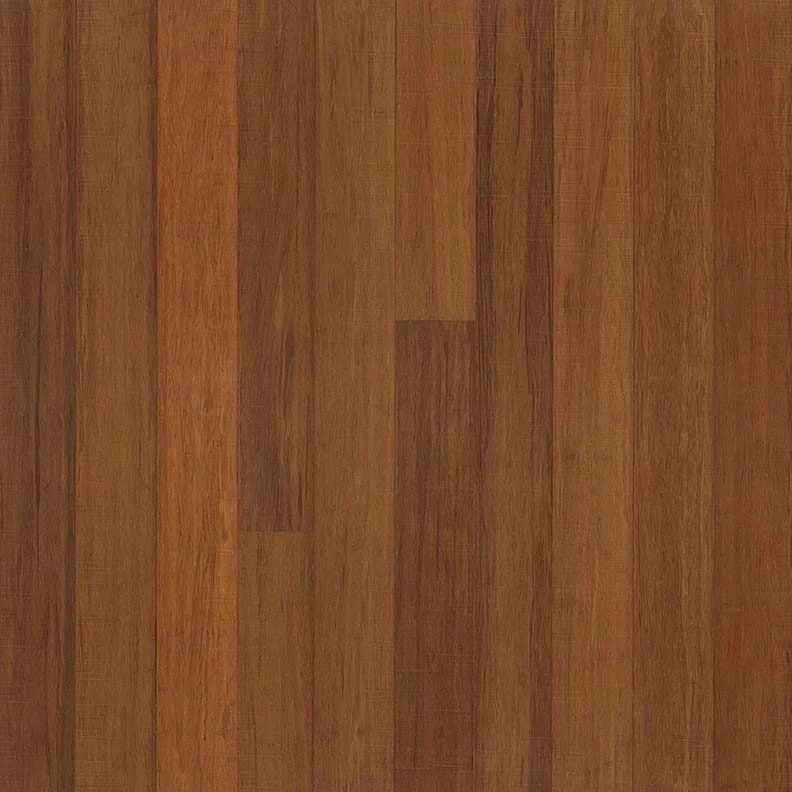
7.5" Wide Plank
Teragren Xcora Tundra
This engineered, strand woven bamboo flooring provides a great alternative to Brazilian walnut or Brazilian cherry while capturing the modern wide plank look. Teragren boasts it is 160% harder than oak and offers it with a floor score certification. Notice the beautiful yet subtle wire brushing and natural saw marks. If you are drawn to exotic flooring, give this bamboo a shot on your next flooring project!
Learn More About Bamboo Flooring
A Piece of Advice
As with most things in life, you get what you pay for. There are a few specific risks involved with buying cheap bamboo flooring. In most cases, there is no warranty attached. If you run into an issue with the flooring, such as cupping, warping, noisy boards, cracking, or delimitation, you are on your own. Manufacturers of lower-quality bamboo flooring often do not harvest their materials at the right time or in a sustainable manner. Sometimes they’ll buy lower quality sections of the bamboo shoot and manufacture it in a way that compromises its stability by not opposing the tension in the pieces of bamboo they press together. In addition, not all bamboo flooring manufacturers use low or no VOC adhesives when bonding their strips. The last thing you want is for your newly installed floor to off the gas and affect your health. The brands we offer are hand-selected by our team. They offer cutting-edge products, produced most sustainably so that you will get everything you dreamed of in your new bamboo flooring.
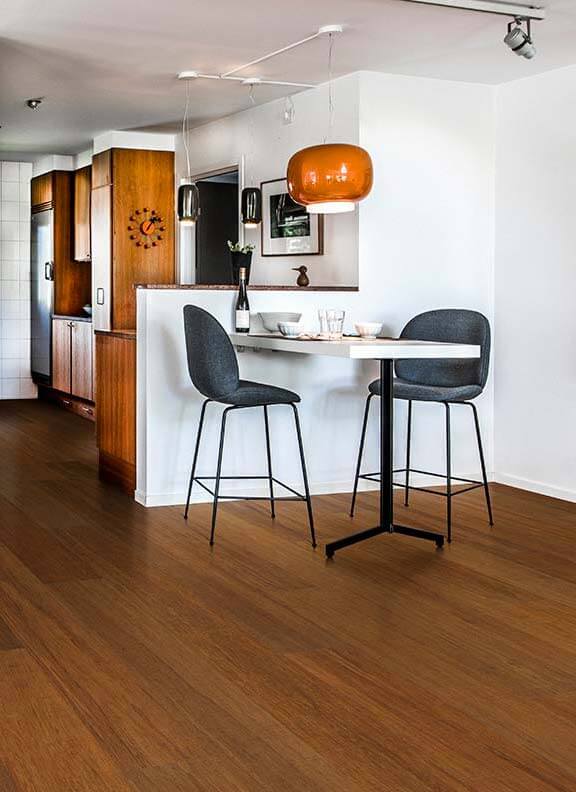
Bamboo Flooring
The Cost
Product – You should expect to pay $5.50 – $12.50 per square foot (sf) for high-quality bamboo flooring. Our Wellmade products are in that $5.50/sf range with some of our Tesoro products getting up around $12.50/sf. Many products will also require an underlayment pad ranging from $.60-1/sf. Be wary of cheaper price points! If you are going to pay more than this range, be sure there are extra defining standards that set the product apart. If you are interested in buying bamboo flooring, please fill out a contact form or give us a call at (503) 775-3628.
Install – Pay the money for a quality install. Do not scrimp on this step. A good installation team will follow manufacturer guidelines for installation and help you have the best chance of qualifying for a warranty in the event of an issue. If you are in the Portland, Oregon area book a free estimate now.
- Floating Click - $3.50-4.50/sf
- Floating Tongue & Groove Glue - $4-5.50/sf + Cost of Glue (approx. $100-200/ 1000 sf)
- Nail Down - $4-6/sf
- Glue Down - Liquid Moisture Barrier - $1-1.25/sf + Glue $1.50-2/sf + Install $6-8/sf
These prices should reflect a national average. cost of a good installer in most major cities. These are also an accurate estimate for Eco Floors pricing. We DO NOT recommend DIY’ers attempt bamboo installs, especially strand woven. Special nailers are required to penetrate strand-woven bamboo flooring, and small indentations can be made in the product by an inexperienced installer. A good installer or team will also be aware of the best installation method for the product you choose.
The Engineered Process of Bamboo Flooring
Durability of Bamboo Flooring
- Janka Rating Range
- Oak: 1200-1300
- Strand Woven Bamboo: 2900-5000 lbs
- Horizontal/Vertical Bamboo: 1300-1800 lbs
- Engineered Bamboo: similar to horizontal/vertical bamboo with real top sheet of bamboo; engineered with different core and top sheet can vary but is typically in the strand woven range.
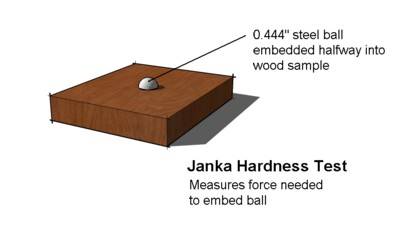
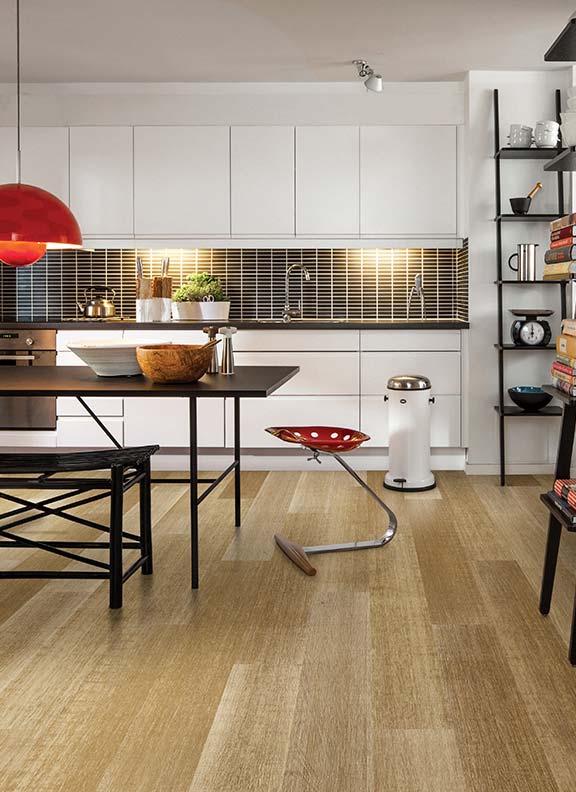
Aluminum Oxide
Top Coat
Most bamboo flooring uses aluminum oxide as an additive in their finish. It is a chemical compound of aluminum and oxygen naturally found in crystal form that is ground down and added to flooring finish to enhance scratch resistance. Combined with high dent resistance, aluminum oxide finish makes bamboo floors highly scratch resistant, think more so than a site-finished hardwood floor. Manufacturers typically bake on 5-10 coats of finish. Off-gassing is not usually a concern with prefinished flooring containing aluminum oxide. The Downside comes when it is refinished. Strand woven bamboo is too hard to refinish, however horizontal, vertical, and some engineered may be refinished which then poses a concern. When the aluminum oxide becomes airborne during sanding, it may cause skin and eye irritation. Exposure to a certain amount could lead to “metal fume fever”.
Three Distinct Looks
Appearance of Bamboo Flooring
As you can see in the image above, bamboo flooring comes in 3 distinct appearances. If you are set on the look of horizontal or vertical bamboo, there will be a compromise in durability compared to strand woven bamboo. Some manufacturers use a process known as carbonizing to darken bamboo to a honey, caramel color. They place the raw strips of bamboo in a steam oven and fill them with carbon to cause the bamboo strips to darken. This does weaken the bamboo but companies like Teragren offer a carbonized bamboo that is 40% harder than oak flooring.
Bamboo can also be stained to achieve many different looks. All the bamboo flooring we offer at Eco Floors comes prefinished, so be sure to check out each of the brands we offer and their full-color selection. Some of the companies even offer hand-scraped, live saw marks, and wire-brushed textures on their products. Along with the modern looks, you can find most bamboo flooring from 3″-7.5″ in width. Request a sample now for a small fee.


With 20 years of experience behind us, we employ both raw material selection techniques and our fine-tuned manufacturing technology to create high-quality bamboo products that are harder and more stable for lasting performance.
